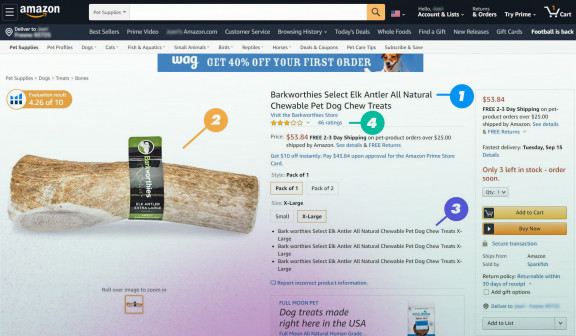
Marketplaces and how PIM can help overcome your challenges
In e-Commerce, marketplaces are gaining progress. When people shop online these days, they frequently begin their search at a marketplace or dedicated platform. Google and other search engines become second place. As a result of increasing marketplace visits, businesses are following suit and selling their items on marketplaces. Conclusion: these are becoming increasingly significant as new marketplaces emerge on a regular basis.
So, what exactly is a Marketplace?
A marketplace is an online store that allows customers to browse for a variety of products from several merchants. From a business standpoint, a marketplace enables businesses to sell all of their products on a single e-Commerce platform that attracts more visitors and has a wider reach than their own specialized online store. Thanks to this concept, marketplaces provide an exceptionally wide range of products (much more than a traditional store could), making them an appealing alternative for online shoppers. The marketplace receives a commission for each sale.
For retailers and brands
Marketplaces provide substantial opportunities for retailers and brands. They have the chance for instance to broaden their horizons and sell to customers in other regions of the world. Even if you're not as ambitious, it will become increasingly difficult to run a profitable business in the future without using markets as a sales channel. Having your own online shop or website will no longer be sufficient as markets continue to grow in popularity. You must establish a strong presence in the places that attract the most online shoppers in order to increase sales and brand exposure. That is why it is critical to find your way into (at least) a few different markets.
Even if selling things on a marketplace is very simple, having a well-thought-out approach assures that your efforts will be successful. The approach should prioritize the customer and always be grounded in market research. However, owning a marketplace is not the same as running your own online store; pricing, listings, PPC, advertising, stock, fulfillment and customer care are often handled differently. Data, primarily product data, will decide your performance on a marketplace in addition to these operational components.
When people shop online, the most important thing they require is accurate data and product information. Data has the power to make or break a sale. Selling online will be an uphill battle unless you provide high-quality, thorough, consistent, and reliable data.
Here's an example of an Amazon listing that may be improved:
This is what needs to be improved:
- The listing's title is too short (less than 150 characters), unclear, and lacks several critical keywords
- A listing should always have at least 7 photographs, not just one
- The bullet points do not adequately define the product's features
- The rating needs attention
You must ensure that your products are easily accessible to customers. You'll stand out among your competitors who sell identical or equivalent products if you provide thorough and accurate product data, including attributes and descriptions.
For the keyword "Laptop standard," the example below provides 770 results that are more than competitive.
convert your strategy into a success
Managing all of this product data might be difficult. Particularly if you have a large inventory and sell through a variety of outlets in various regions and nations. Because each marketplace has its own set of standards for product data, keeping track of it becomes much more difficult. By incorporating Product Information Management (PIM) into the mix, you can confront these issues head on and convert your strategy into a success. A PIM system gives you the ability to manage all of your product data in one location, from which you can effortlessly publish up-to-date and relevant product data to all of your channels, including marketplaces.
Ready for take-off?
A flexible and comprehensive approach is required to enable a successful digital transition. One that begins with data and ends with measurable business results. This will be a difficult task. Luckily, we have extensive experience assisting businesses with the development and implementation of a successful Product Information and Marketplace strategy.

